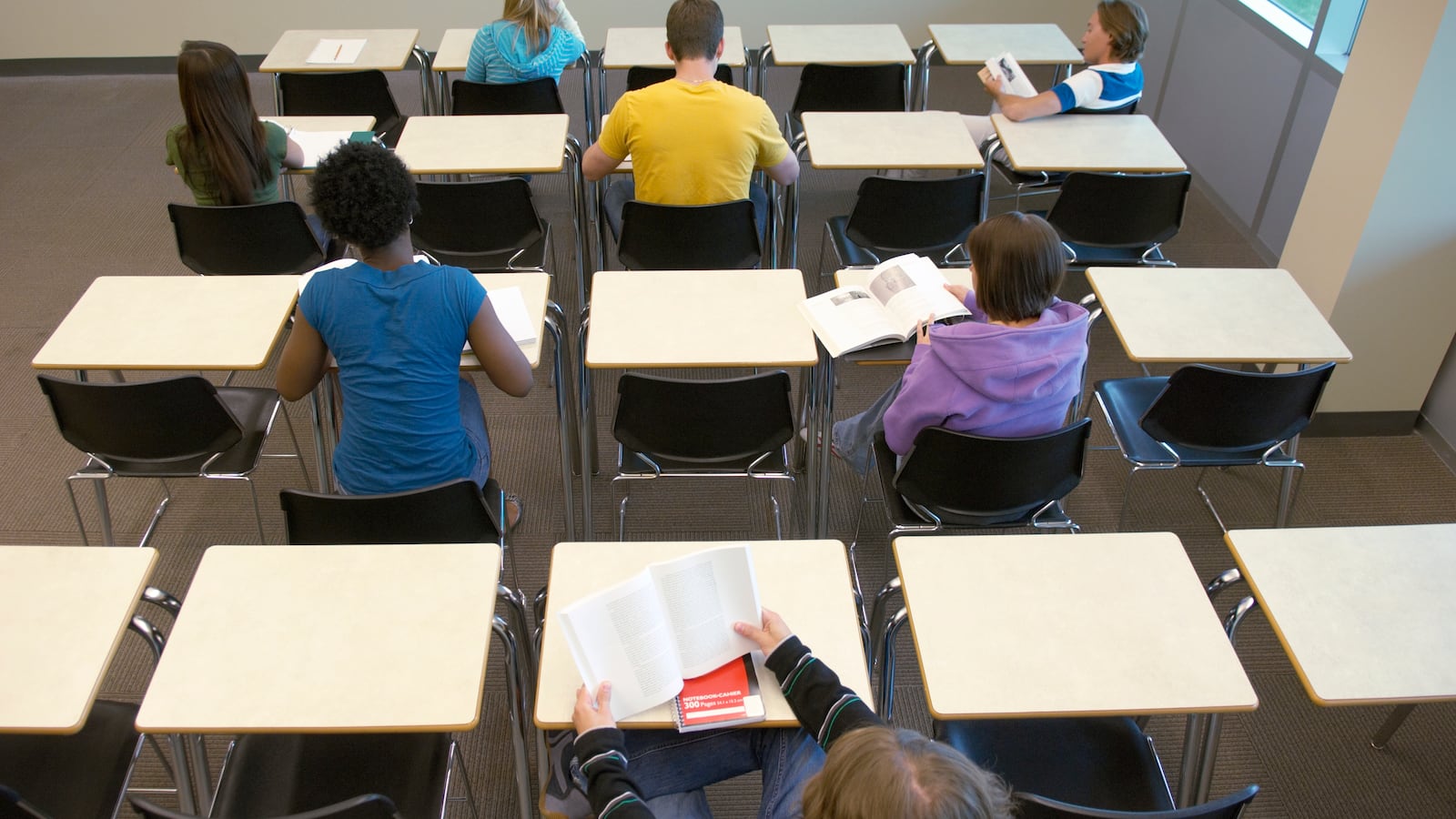Chicago’s school board has agreed that the district should ask for an extra year to phase in a plan to make gifted services available to more children outside of its test-in schools. This comes despite opposition from a vocal group of advocates who pushed for a new state law to expand gifted services in Illinois schools.
Chicago Public Schools’ request will now advance to the Illinois State Board of Education, where it will likely be approved. The statute does not specify how long a district has to adopt or implement the policy, according to an ISBE spokeswoman.
Explaining the reasoning behind the request Wednesday, Chief Education Officer LaTanya McDade told the board that the district needed more time to comply with the Illinois Accelerated Placement Act, which took effect July 1. The act, which Gov. Bruce Rauner signed into law in August 2017, compels districts to put programs in place to accelerate learning for children who qualify. That could include offering the chance to start kindergarten and first grade early, accelerating a child in a single subject, or having the child skip a whole grade.
McDade told the board that, to work as intended, Chicago’s plan would need to go beyond the scope of students who’ve already been identified as gifted and talented. Chicago needs a plan that is “open to all children who demonstrate high ability,” McDade said. Mirroring some national trends, low-income students in Chicago make up more than 82 percent of the district but only comprise 60 percent of gifted seats, according to a 2016 report.
“In order to do this effectively and implement with integrity,” she said, “we want to take time to do this the right way.” It will take time, she said, for the district to identify an assessment tool that could be used at individual schools and incorporate a public engagement period aimed at parents, she added.
Chicago schools currently offer parents the option to test elementary children for placement in its gifted and classical programs, but there aren’t enough seats for every child who qualifies and not every neighborhood has access to a nearby program. The assessments are administered in a central location in one-on-one sessions between children and proctors who contract with the district.
Joshua Dwyer, the policy director of Empower Illinois, which advocated for the law, said Chicago’s process of sorting gifted children favors the “lucky” and the “connected.” Delaying implementation of the law, even for a year, denies some children “the right to reach their full potential,” he said.
Speaking before the board Wednesday, Eric Calvert, an associate professor who works with Northwestern University’s Center for Talent Development, and two parents who identified their children as exceptional learners also urged the district to act now. Angel Alvarez, a parent, likened waiting a year to provide services for his daughter to telling a star athlete to sit on the sidelines. “It’s unfathomable to suggest to a star athlete that they not share their talent with the world,” he said. “Doing nothing is not the same as doing no harm.”
Irene Gottlieb, whose daughters have bounced between regional gifted centers, private schools, and homeschooling, said she has been waiting for a public comment period since the law passed in 2017. “They’ve had a year to do it. I know CPS is a large district, but they have an opportunity to lead from a policy perspective, instead of being a late adapter.” A particularly compelling part for the act, she says, is the ability for children to skip grades.
A 2016 study titled the Untapped Potential Report examined the gifted gap in Chicago and found that white students, who make up 10 percent of the district, occupied one in four gifted seats. Hispanic students, meanwhile, were particularly underrepresented, comprising 46 percent of total CPS students, but only 25 percent of seats in elementary gifted programs.
Editor’s note: This article was updated to reflect that Joshua Dwyer is policy director of Empower Illinois, not executive director as previously written.

